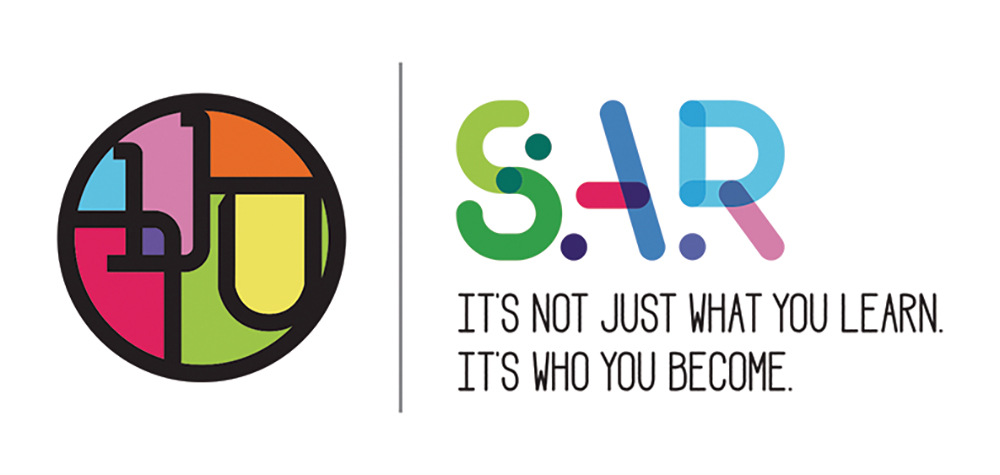Recently, I had the privilege to spend a delightful evening at a friend’s sukkah and, in so doing, learned a great deal about the holiday and the special rituals associated with its celebration. I learned that the sukkah serves as a reminder of God’s protection of the Israelites in the desert. It was also not lost on me how the holiday celebration is perfectly consistent with the American ideal of “one nation under God.”
During these hyperpartisan and polarizing times, we here in New Jersey also need to be one state. Given our diversity, that hasn’t always been easy. But there is great power and beauty in our diversity. All we need to do is embrace it, which is ultimately the responsibility of every citizen.
While each ethnic, cultural and religious community has its own unique and beautiful way of life, each also has its own unique challenges and goals. And so, our state’s remarkably diverse population presents an exceptional opportunity for political candidates to demonstrate their sensitivity to our varied communities.
Political rhetoric, in part, helps demonstrate that sensitivity. So do voting records and detailed policy positions and proposals. Specific to New Jersey’s Jewish community, which is one of the largest of the 50 states, I stand by my legislative voting record as well as my platform from last year’s gubernatorial campaign.
I have always believed that unique circumstances require unique solutions. If ever there was a classic case for that approach to problem solving, Ocean County’s Lakewood Township school busing issue was it. Back in 2016, school busing in the Township was in crisis. The challenge wasn’t just about budgeting and property taxes, it was also about public safety. At the time, Lakewood had 30,000 K-12 students, 24,000 of whom attended private school, which, by the way, significantly reduced the educational cost of the Township’s public school system.
By law, local public school districts must provide transportation or make a direct payment to the parents/custodians for any child attending private school. This works in most school districts where a minority of students attend private school. It doesn’t work in school districts where the overwhelming majority of students attend private school. And so, I voted “yes” on a unique solution to provide state aid to a consortium of Jewish private schools, allowing them to negotiate a multiyear contract with school busing companies. The legislation, which solved the budget crisis and, most importantly, ensured public safety, passed by one vote!
Another issue important to the Jewish community is the boycott, divestment and sanction (BDS) campaign, which is just another attempt to delegitimize, isolate and punish Israel. Back in 2016, I voted “yes” on a state law that prohibited the investment of state pension funds in businesses that engaged in boycotts. And last year, as a gubernatorial candidate, I wholly supported New Jersey’s plans to divest its pension funds from Unilever, the company that owns Ben & Jerry’s, over its decision to stop selling ice cream in Israeli settlements.
There is another way to strengthen New Jersey’s relationship with Israel, but before mentioning … I often speak to two things that all Americans value most. Two things that are essential to every citizen achieving their American Dream. I speak of opportunity and security. Specific to the former, we can do better in New Jersey. A perfect example is New Jersey’s bilateral trade with Israel.
Bilateral trade is defined by the value of goods imported and exported with any one partner country. Last year, New Jersey did $1.5 billion in bilateral trade with Israel. That may sound significant, until you hear that New York’s bilateral trade with Israel exceeded $14 billion.
What does New York have that New Jersey does not? New Jersey’s location, modes of transportation, including the largest port on the East Coast, its workforce and its capital markets all strongly suggest we should be more competitive with New York when it comes to bilateral trade with Israel, or any other nation-state. Our failure to exploit and realize all the potential that exists for bilateral trade with Israel thwarts economic development and job growth in New Jersey. Said another way, it minimizes opportunity for our citizens and, in turn, security, for both the United States and Israel.
In one of my next columns, I’ll speak to another issue important to New Jersey’s Jewish community, and all our other religious communities: namely, New Jersey’s Interfaith Advisory Council.
Jack Ciattarelli, the 2021 Republican nominee for New Jersey governor and a likely 2025 gubernatorial candidate, is a contributor to the opinion pages of The Jewish Link. Ciattarelli is a lifelong New Jersey resident and married father of four adult children; a certified public accountant (inactive); and a two-time successful entrepreneur who owned and operated successful medical publishing companies based in New Jersey. He has previously held elected office at the municipal, county and legislative levels.










